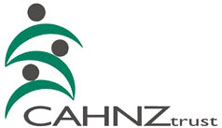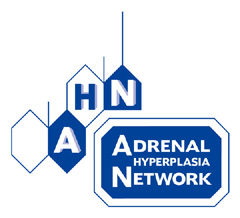Prof Garry Warne - Paediatric Endocrinologist - Royal Childrens Hospital Melbourne
Prof. Warne’s presentation was appropriately titled ‘How to Master CAH and Get the Most out of Life’.His presentation covered issues for families that present when a child is first diagnosed with CAH. Some of these were –
Goals for parents – getting through the difficulties and obtaining empowerment through education and understanding.
Process - access to appropriate counselling and information as well as seeking out emotional support both professionally and from other families.
Goals for the child - the most obvious goal is to prevent acute adrenal crisis’, growing up with a sense of well-being, achieving optimal growth and body weight and working out individual needs and responses to medication.
Stress - during the discussion of stress dosing, it was suggested that the results of studies indicated that there was no need for CAH patients to take additional cortisone for the anaesthetic itself. In fact it was the stress of the incision that placed the body under stress and created the need for stress dosing of cortisone. This has sometimes not been clear whether the stress dosing was for the act of being anaesthetised or purely for the action of surgery.Another helpful issue raised was that it’s recommended to give children sugar or glucose every two hours during an acute illness to prevent hypoglycaemia.
Height potential – Insufficient cortisone allows androgens to rise excessively creating faster growth and when bone age advances faster still, this results in lost height potential. On the other hand, too much cortisone will retard growth. This can happen when there is too much stress dosing, sometimes as a result of anxiety. The next stage covered was -
Adolescence.The main goals during this stage of life is to ensure a healthy self esteem, healthy sexual development and access to information and support. As was covered, it is paramount that during adolescence they have access to information and have their questions answered. It is good practice for parents to project optimism and confidence and not direct their anxiety to their child but to seek out other sources for support.
Prof John Hutson - Director of General Surgery, Royal Childrens Hospital Melbourne
Prof. Hutson talked about why surgery is considered necessary for virilised girls. To consider surgery while the child is an infant poses some questions
For –
reduced parental stress
reduced patient stress (they don’t remember the surgery)
simpler operation
prevents urinary infections
Against-
parental consent only - child’s consent not gained
may need revised surgery in adolescence
On the other hand, considerations for postponing this surgery until the child is an adolescent would be -
For-
patient consent
a single operation
Against-
increased stress during childhood
more complex operation
risk of recurring urinary infections during childhood
Prof. Hutson recommended that children have surgery as infants due to the lack of trauma, quick recovery and the possibility of avoiding further surgery when he or she is older or at least a much more simple surgery in the older years. A recent review of patients found that it was best if –
· no surgery was done between 2 to 12 years of age
· no dilation in childhood
· the surgeon follows up regularly (can explain anatomy)
· gynaecologist was involved at 10-15 years of age
Prof. Hutson showed some slides of before and after pictures of corrective surgery. He then provided drawings of the process during surgery and how each reconstruction is done. Mothers who are able to take the prenatal treatment of Dexamethsone can minimize or avoid this corrective surgery.
Assoc Prof Sonia Grover - Paediatric & Adolescent Gynaecologist - Royal Childrens Hospital Melbourne
Prof. Grover outlined the process for local families in the Melbourne area with regards to the team care between the Paediatric Endocrinologist, Surgeon and Gynaecologist. She highlighted many issues that can appear during adolescence such as –
· further surgeries,
· menstruation,
· boyfriends and
· sexual relationships.
She explained the need for medical professionals to be aware of potential self esteem issues, emotional trauma from regular genital examinations and peer acceptance. Some of the topics and issues she approaches in her appointments are -‘what is normal anatomically?’‘are other girls or boyfriends going to notice any differences?’‘what’s normal acne, weight and periods?’
In conclusion she recommended that surgeries be done by someone with particular expertise in that field. Also the benefits of having a multidisciplinary team to provide treatment, surgery and gynaecological medical care was emphasised.
Prof Peter Fuller - Adult Endocrinologist - Prince Henry's Institute of Medical Research - Dept of Endocrinology, Southern Health, Clayton
Prof Fuller’s presentation opened with a very interesting case study of one of his patients with CAH. He led us through the processes of appointments, treatment and social issues this patient had over the years. While stressing that keeping to the recommended appointment schedule and complying with medications is paramount, it was reassuring to parents to realise that, even though this patient was lax at times with appointments and keeping on top of his management of CAH when overseas and during illnesses, overall this patient was living a very normal life with little restriction in his day to day living.Prof Fuller explained that there were obvious changes from parents accompanying their children to appointments to when they assume responsibility for going to appointments as adults. This highlighted the need to ensure that our children get age-appropriate education throughout the years to assist them in the successful handover of management of CAH by the time they reach adulthood. There may be different expectations from someone transitioning from a paediatric-type treatment environment compared to and new and unfamiliar consultation treatment from an Adult Endocrinologist.Prof. Fuller also touched on other topics which concern the CAH adult. These topics included – fertility (improved success but still reduced fertility rates compared to the general population); testicular tumors (more evident when corticosteroid replacement /control is poor); effects of over/under medicating (fatigue, weight issues, thinning skin, Cushing syndrome, etc.); lifestyle issues (psychosocial health, partnerships/marriage); therapies (such as antiandrogens for hirsutism, questions about on-going treatment for non classics beyond childbearing years, etc.). In conclusion, those attending felt that, while it was a lot of information to take in on a single day, it was a fantastic opportunity for accelerated education. The question and answer time was, as always, very helpful. Each year we take into account the feedback and what is available for us and, hopefully, we are getting the balance of lectures and opportunities of questions better each year.



